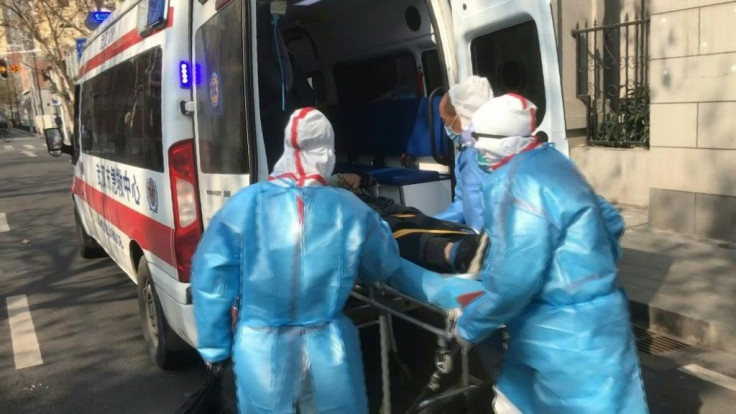Tuesday's Stock Market Open: US Equities Rise Ahead Of Fed Boss Powell’s Testimony

KEY POINTS
- Confirmed cases in China have now reached almost 43,000
- The U.K. economy showed no growth at all in the fourth quarter of 2019
- WHO's chief called the virus a “very grave threat” to the world
Update: 12:05 p.m EST:
U.S. stocks trade higher at Tuesday noon with the S&P 500 and Nasdaq reaching new highs.
The Dow Jones Industrial Average gained 16.19 points to 29,293.01 while the S&P 500 rose 12.02 points to 3,364.11 and the Nasdaq Composite Index advanced 43.93 points to 9,672.31
Federal Reserve Chairman Jerome Powell told the House Financial Services Committee the central bank is “closely monitoring” the coronavirus situation in China. But Powell added it is “too early to say” how the coronavirus may impact the U.S. economy.
In Europe markets finished higher, as Britain’s FTSE-100 rose 0.65%, France’s CAC-40 gained 0.46% and Germany’s DAX jumped 0.99%.
Original story:
U.S. stocks opened higher on Tuesday as traders awaited Federal Reserve Chairman Jerome Powell’s testimony before Congress.
The Dow Jones Industrial Average gained 117.72 points to 29,394.54 while the S&P 500 rose 15.75 points to 3,367.84 and the Nasdaq Composite Index advanced 53.61 points to 9,682.
Fed Chairman Powell will commence his testimony before Congress at 10 a.m. He may discuss monetary policy and the economic impact of the coronavirus outbreak in China.
China’s National Health Commission said on Monday night the death toll from the virus had climbed to 1,016 people with 42,638 confirmed cases.
Zhong Nanshan, a Chinese epidemiologist told Reuters on Tuesday that he thinks the virus outbreak will reach a peak by either the middle or the end of February before the number of cases begin to fall off.
However, the director-general of the World Health Organization, Tedros Adhanom Ghebreyesus, called the outbreak a “very grave threat.”
“With 99% of cases in China, this remains very much an emergency for that country, but one that holds a very grave threat for the rest of the world,” he said.
Analysts worried about the virus' global economic impact.
“At the margin, we have to consider that the rebound in growth we were expecting over 2020 may be either delayed or somewhat less vigorous than we were anticipating due to the impact of the virus,” Mark Robertson, head of multistrategy at Aviva Investors, said. “But ongoing monetary policy support, especially what was delivered last year, a reduction in uncertainty around trade wars, should still be a tail wind.”
Peter Boockvar, chief investment officer at Bleakley Advisory Group, said while the stock market assumes no impact from the virus “as we continue to chug higher, expect much more of this kind of talk as companies figure out the full effect. For many companies, these sales will not be made up.”
The Office for National Statistics said Tuesday that the U.K. economy grew by 1.4% in 2019 – slightly higher than the 1.3% rate in the prior year – but saw no growth at all in the fourth quarter.
The National Federation of Independent Business said its index of small-business optimism rose to 104.3 points in January from 102.7 in December.
Overnight in Asia, markets finished mixed. China’s Shanghai Composite gained 0.39%, while Hong Kong’s Hang Seng gained 1.26%, and Japan’s Nikkei-225 fell 0.6%.
In Europe markets traded higher, as Britain’s FTSE-100 rose 0.78%, France’s CAC-40 gained 0.46% and Germany’s DAX jumped 1.03%.
Crude oil futures advanced 2.12% at $50.62 per barrel and Brent crude surged 2.53% at $54.62. Gold futures fell 0.24%.
The euro edged up 0.05% at $1.0916 while the pound sterling gained 0.31% at $1.2954.
© Copyright IBTimes 2025. All rights reserved.





















